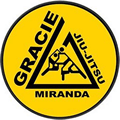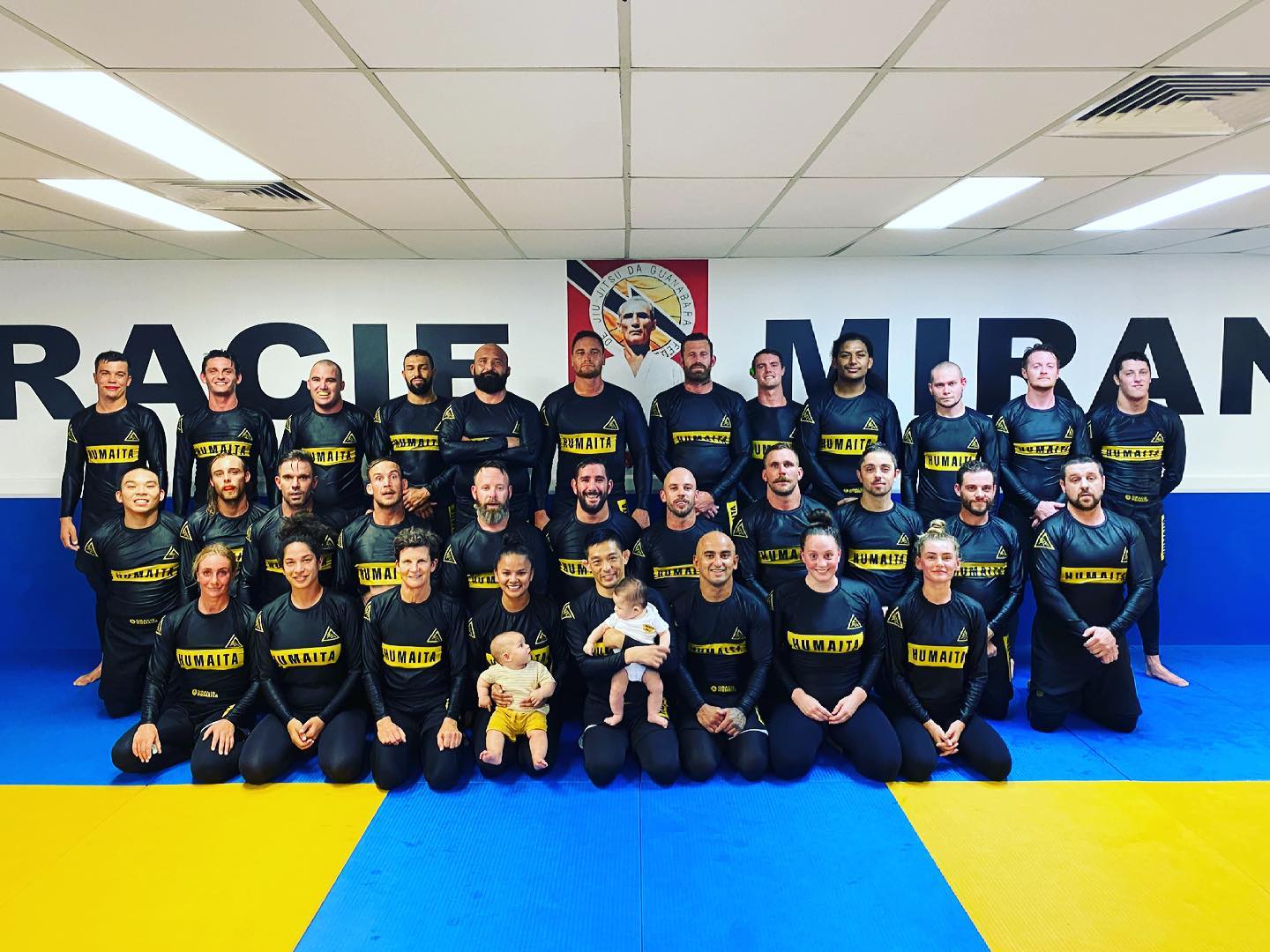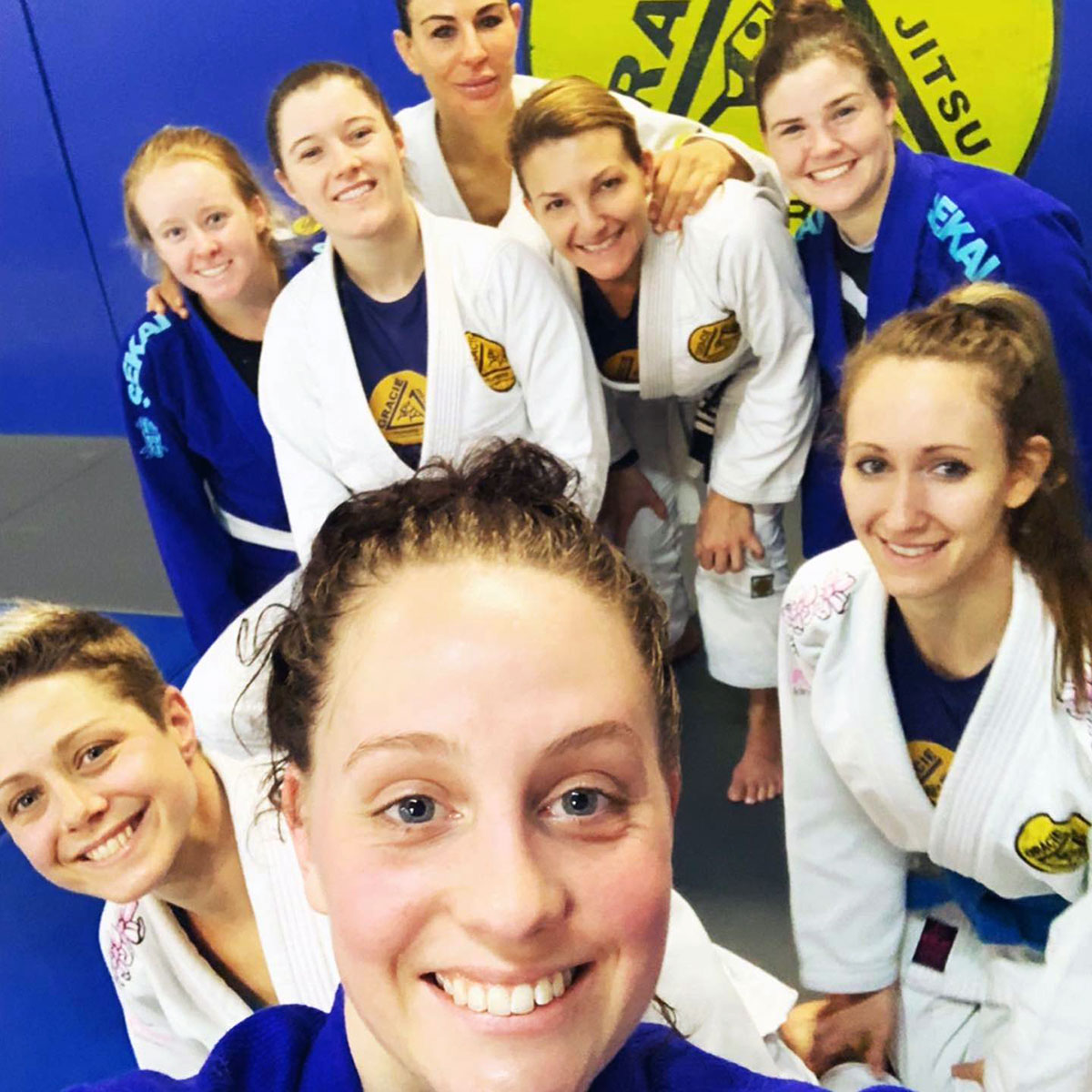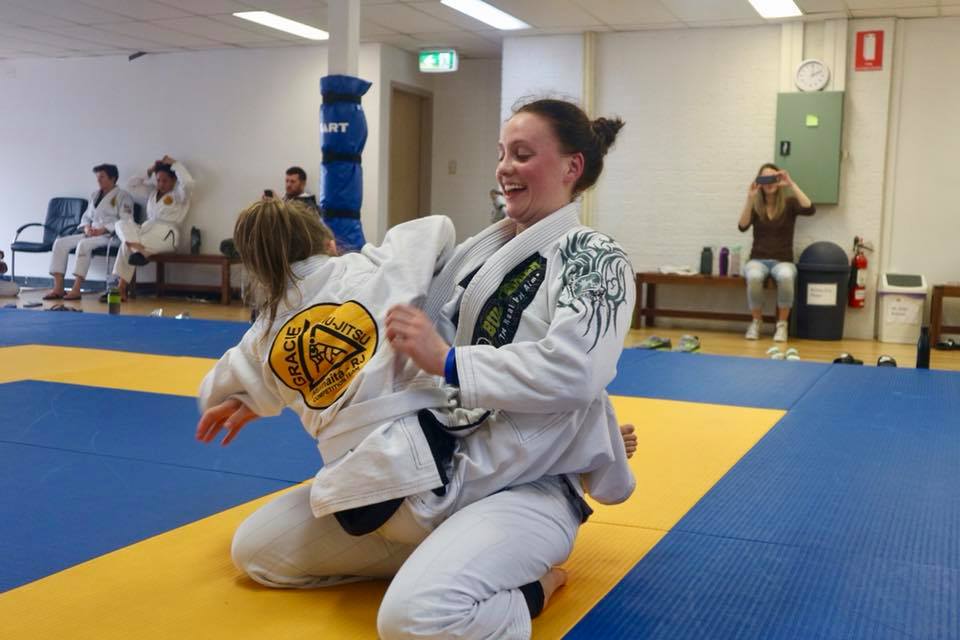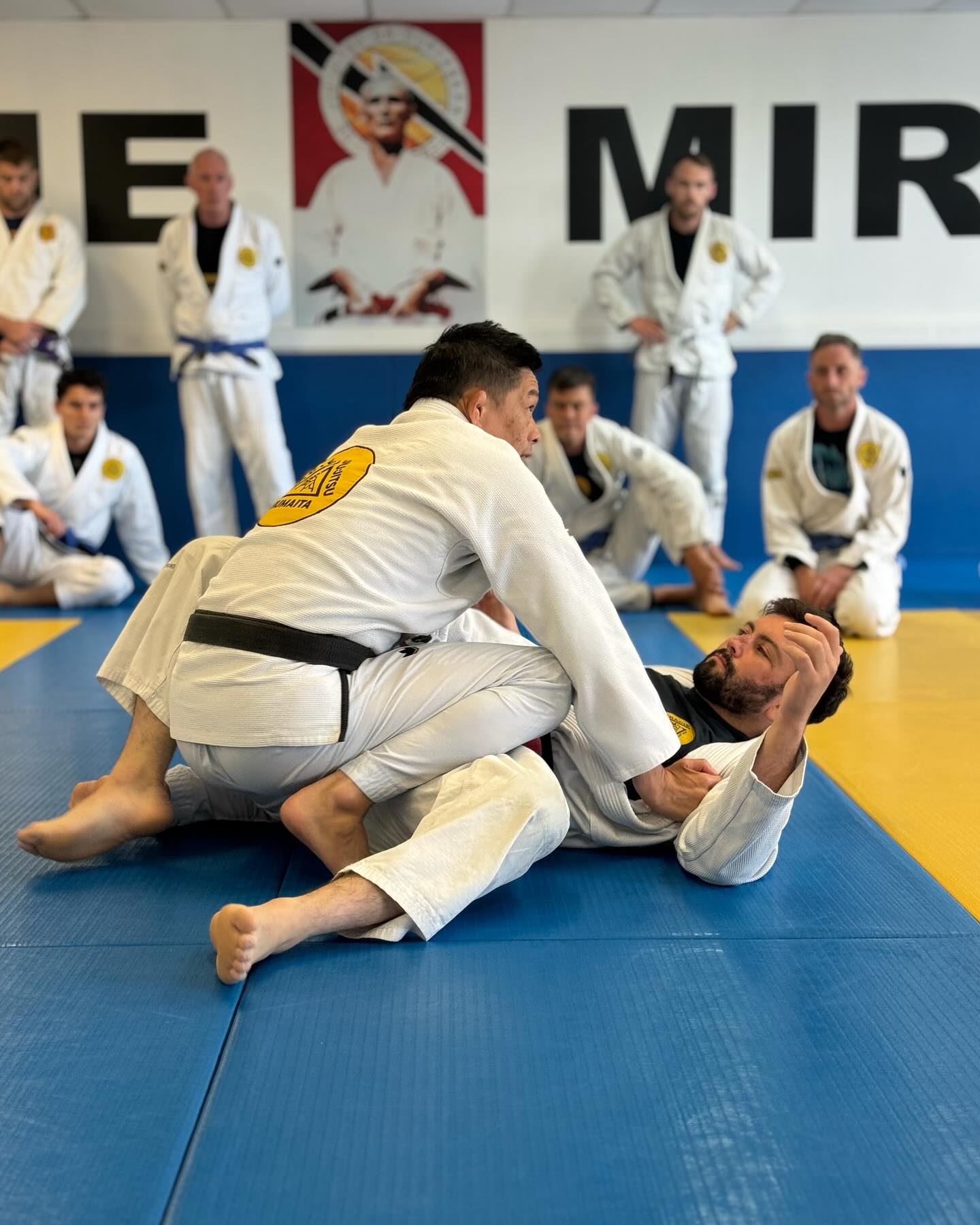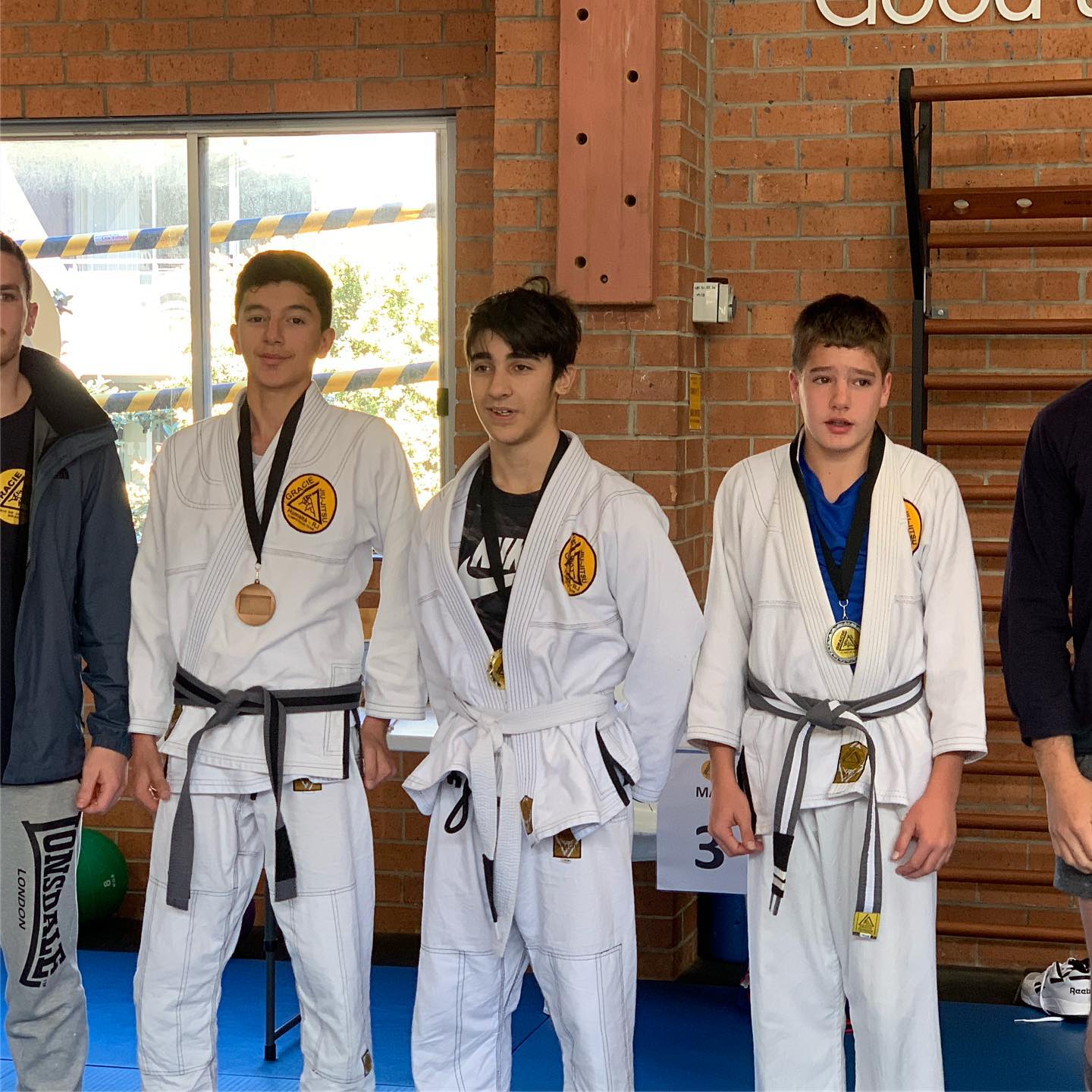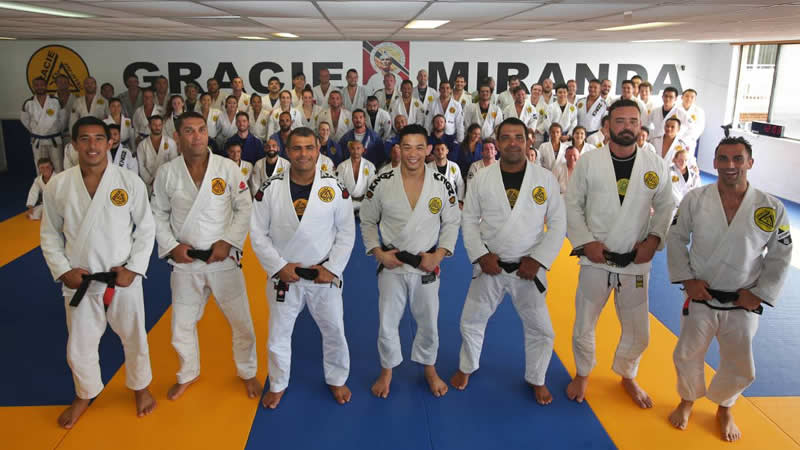Brazilian Jiu-Jitsu is known for many things. It’s the discipline that kicked off the UFC, it’s become arguably the most prominent martial art for self-defence, and it’s really, really complicated. The fact that earning a black belt takes between 10 and 15 years is an indication of how deep the systems of Jiu-Jitsu run.
Gracie Miranda is home to grapplers from all across The Shire. Whenever new students join our academy, it’s not long before they have dozens of questions about what to do in certain grappling situations. As people with more experience know, however, a lot of succeeding in martial arts can be more about what you don’t do.
Jiu-Jitsu is a grappling martial art that takes place almost entirely on the ground. The premise is both that most fights end on the ground, and also that taking an opponent to the ground can go some way to neutralizing a size and power advantage. Becoming an expert in BJJ takes many years of training, and many hundreds of hours of practice. It’s a long journey.
If you’re at the beginning of that journey, or are considering signing up to Jiu-Jitsu classes in the Sutherland Shire, here are some tips that may be of use.
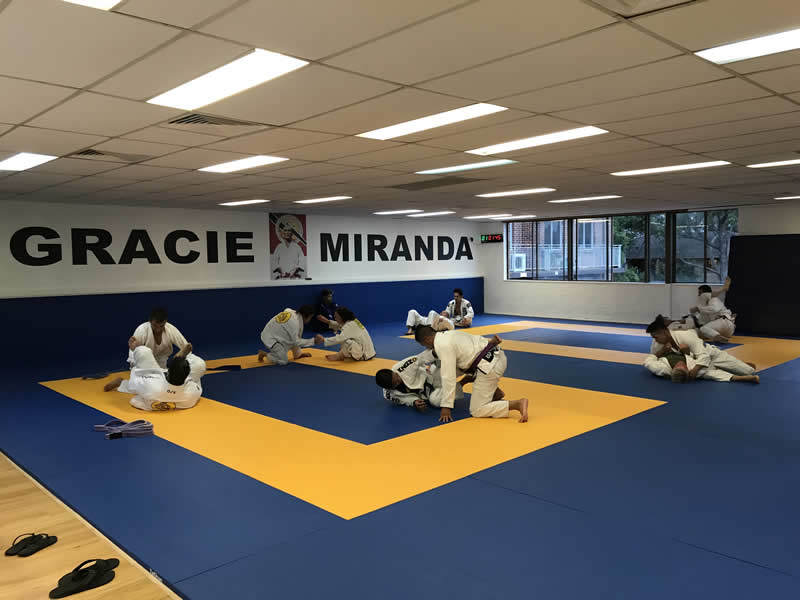
Holding your breath
One of the fastest ways an experienced grappler can identify a newbie is by the way they breathe. When it comes time to sparring (or “rolling” as we call it), BJJ beginners frequently tense up and forget to breathe altogether.
There are a few reasons why, all of them understandable. When you’re inexperienced, your knowledge of techniques is limited. As a result, you have to consciously focus to remember the moves you’ve been taught and how to apply them. Newer grapplers also tend to have an aversion to “losing” a roll, and so will attempt to anxiously spasm out of bad positions to ward off submissions.
In the throes of all this, inexperienced students often forget to breathe. This has a counterproductive effect, as inconsistent breath leads to rapid fatigue – which makes you far more likely to be submitted.
It’s simple advice, and easier said than done. But when you’re a beginner, focus on breathing out (people tend not to forget to breathe in, but often forget to breathe out) and staying loose.
You’ll find that doing so gives you longer lasting energy, and a much clearer mind.
Straightening your arms
Submitting an opponent in Jiu-Jitsu typically involves bringing their elbows close to their head. Your arm is weaker when it’s straight, and easier to move around. Whether it’s from mount, side control or guard, armlocks and many chokes require your opponent’s arm to be up by their shoulder or near their head.
If you know your opponent needs your arms up high to submit you, try to deprive them of that advantage by keeping your elbows by your hips. Though you’ll still have to watch out for guillotines and collar chokes, this rule of thumb will help you defend against many submissions and bad positions.
Sometimes you’ll need to straighten your arms to push away, but recognize a straight arm for what it is: A liability.
Using grips instead of hips
Your hips are your superpower in Jiu-Jitsu. Much of what you learn in BJJ is either about neutralizing your opponent’s hips or utilizing your hips against your opponent. Escaping from positions like mount, sound control or even back control all rely on effective movement of your hips.
However, newer grapplers tend instead to focus on using their hands. They try to pull an opponent on top of them, or push them away. This is a subtle way in which inexperienced students try to use strength and power rather than technique.
When you find yourself in a bad position, experiment with moving your hips. Try moving them up, down and side to side. Try turning them in or out. Gradually, you’ll figure out that moving your hips in a certain direction will off balance your opponent more efficiently than brute power can.
Not tapping fast enough
Knowing when to tap out is essential to BJJ longevity. Hint: It’s earlier than you might think.
Part of this has to do with a greater lesson, which is to leave your ego at the door. There is no shame in submitting to another person on the Gracie Miranda mats. By the time a grappler earns their blue belt, they’re likely to have tapped out hundreds of times.
Sparring in Jiu-Jitsu is not about beating your opponent, it’s about learning which techniques do and don’t work for you. By the time someone has you in a submission hold, like a rear naked choke or a mounted armbar, you’ve already made several mistakes. It’s more important that you learn which mistakes got you in the bad position than it is to try and grit your way out of a submission.
If you’re practicing a submission escape, that’s one thing. It’s another if you’re thoughtlessly trying to flail your way out of a submission hold. Doing the latter vastly increases your injury risk, and offers very little in the way of productive experience.
If you’re in the Sutherland Shire and are interested in martial arts classes, come into Gracie Miranda for a free trial.
